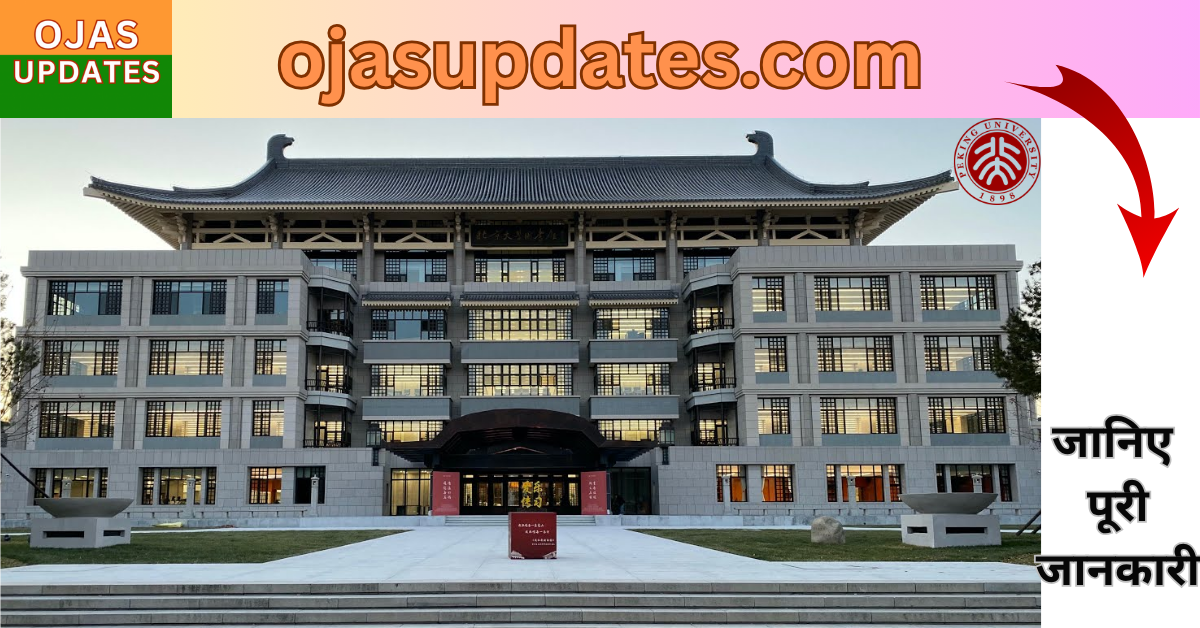Peking University, also known as PKU, stands as one of the most prestigious universities in China and the world. Established in 1898 during the late Qing Dynasty, this institution has played a pivotal role in shaping modern China’s intellectual, cultural, and scientific development. With a legacy that spans over a century, Peking University continues to inspire generations of students and scholars, offering a vibrant environment for research, innovation, and personal growth. In this blog, we will explore the history, campus life, academic excellence, and international impact of Peking University, as well as what makes it a symbol of academic distinction.
A Rich History Rooted in Tradition and Reform
The history of Peking University is intertwined with the evolution of modern China. Founded as the Imperial University of Peking in 1898, it was initially established to promote Western-style education. Its founding marks the beginning of China’s efforts to modernize and open up to new intellectual currents. In the early 20th century, the university became a hotbed for political and intellectual reform. It played a critical role in the May Fourth Movement of 1919, which called for political, cultural, and social changes within China. During this period, PKU became a hub for scholars advocating for national renewal and reform, an atmosphere that nurtured prominent figures like Lu Xun, Chen Duxiu, and Mao Zedong.
Academic Excellence and Global Recognition
Today, Peking University is recognized as a world-class academic institution. It consistently ranks among the top universities in the world, and its programs in subjects such as economics, political science, literature, and engineering are considered to be among the best globally. With over 40,000 students and a faculty comprising some of the most distinguished scholars in their respective fields, PKU offers a diverse range of undergraduate, graduate, and doctoral programs.
The university’s comprehensive approach to education promotes interdisciplinary learning, allowing students to engage with multiple fields of knowledge. PKU boasts a highly competitive admission process, attracting the brightest minds from across China and beyond. Its rigorous academic standards ensure that students receive an education that is both challenging and rewarding, and the university places a strong emphasis on research-driven teaching.
Peking University’s faculty and alumni include Nobel laureates, leading scientists, economists, politicians, and cultural icons. Its academic collaborations with international institutions are extensive, strengthening its role as a global leader in higher education. PKU also regularly hosts international conferences, attracting scholars from around the world to discuss pressing global issues.
The Beautiful and Historic Campus
Located in the heart of Beijing, Peking University’s campus is an amalgamation of traditional Chinese architecture and modern design. The campus is home to lush greenery, tranquil lakes, and historical buildings, which make it one of the most picturesque university campuses in the world. The university’s most iconic landmark is the Weiming Lake, a serene body of water that has become synonymous with the PKU experience.
The campus is also home to the Old Gate, which has witnessed centuries of history and remains an enduring symbol of the university’s spirit. The blend of traditional Chinese aesthetics with modern infrastructure not only enhances the campus’s beauty but also creates an inspiring environment for both learning and leisure. With a range of cultural and recreational facilities, students are encouraged to explore their creative potential outside of the classroom as well.
Cultural and Extracurricular Life
Peking University is not only about academic rigor; it is also a place where students can immerse themselves in a rich cultural life. The university offers a wide variety of extracurricular activities, ranging from student clubs to sports teams, arts, and social causes. PKU’s vibrant campus life promotes holistic development and fosters a sense of community among students.
One of the most notable aspects of PKU’s student life is the cultural diversity it fosters. As an internationally recognized university, PKU attracts students from all over the world. This multicultural environment allows for the exchange of ideas and the development of global perspectives. Whether through student-run organizations, cultural festivals, or volunteering opportunities, students at PKU are encouraged to be engaged citizens of the world, prepared to contribute to society at both local and global levels.
A Global Impact: Peking University’s Role in China and Beyond
As China continues to expand its influence on the global stage, Peking University is playing an increasingly important role in both national and international affairs. The university is deeply involved in research that addresses China’s most pressing challenges, such as economic reform, environmental sustainability, and social inequality. Its academic contributions are shaping policies and driving innovations that are having a tangible impact on China’s development.
Moreover, PKU is a key player in fostering international collaborations, hosting global academic exchanges, and promoting cross-cultural understanding. Through its extensive network of partnerships with universities and research institutions worldwide, Peking University is making a positive impact on global education and research. It stands as a bridge between China and the rest of the world, offering opportunities for mutual growth and understanding.
Conclusion: A Legacy of Excellence and Innovation
Peking University is not just an academic institution; it is a symbol of China’s intellectual and cultural vitality. Its historical legacy, academic excellence, and commitment to global engagement make it one of the most respected universities worldwide. For anyone considering higher education in China, Peking University offers not only world-class education but also a unique opportunity to be part of a rich and dynamic cultural and intellectual community.

